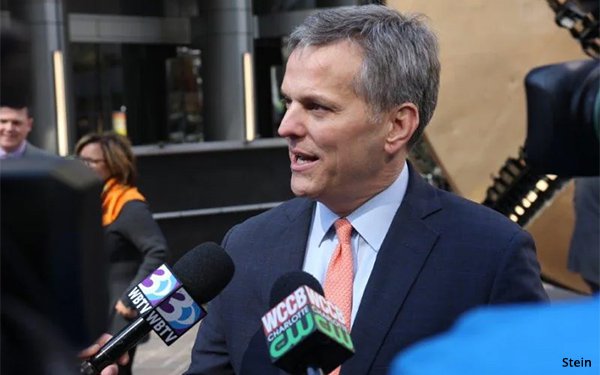
A federal judge has temporarily put on hold a
North Carolina law that prohibits false or reckless reports about candidates in political primaries.
U.S. District Judge Catherine C. Eagles wrote that the
plaintiffs “have shown a likelihood of prevailing” with their claim that the 89-year-old law (N.C. Gen Stat. § 163-274(a)(9)) is unconstitutional under the First
Amendment.
In theory, the plaintiffs could face “potential criminal prosecution for violating an overbroad criminal libel statute.”
This case
does not directly involve a publication, but the Reporters Committee for Freedom of the Press notes that it could have an impact on media.
The Reporters Committee
states that the Supreme Court may be called on to “clarify the boundaries of the government’s ability to publish false speech outside the traditional bounds of defamation and
fraud.” This could happen as “a growing number of politicians make no secret of their desire to loosen libel laws to target press coverage they perceive as
critical.”
advertisement
advertisement
The case concerns slurs exchanged between the primary campaigns of Democrat Josh Stein and Republican Jim O’Neill for the office of Attorney
General, which Stein had held since 2017. O’Neill charged that Stein had let unused rape kits pile up.
Stein retaliated with a “corrective advertisement,” charging that
O’Neill had a large backlog of such kits in his own jurisdiction in Forsyth County.
O’Neill claimed this ad was false and sought to retaliate. “But he did not do
so by pursuing a civil defamation action: Instead, as a sitting District Attorney, he sought to place law enforcement investigators in the position of judging the appropriateness of political
speech,” the complaint alleges.
It continues, “The resulting investigations, conducted pursuant to an archaic and never-before used law enacted in 1931…seek to punish
Plaintiffs for core protected political speech and to chill the speech of Plaintiffs and others going forward in clear violation of the First Amendment.”
The parties are to appear
in court this Thursday to argue whether the TRO should be continued as a preliminary injunction. The defendants are meanwhile enjoined from attempting to enforce the law in question.
The
Reporters Committee writes that “we don’t lack for old laws that purport to prohibit political lies — it just isn’t obvious that they can survive
close contact with the First Amendment.